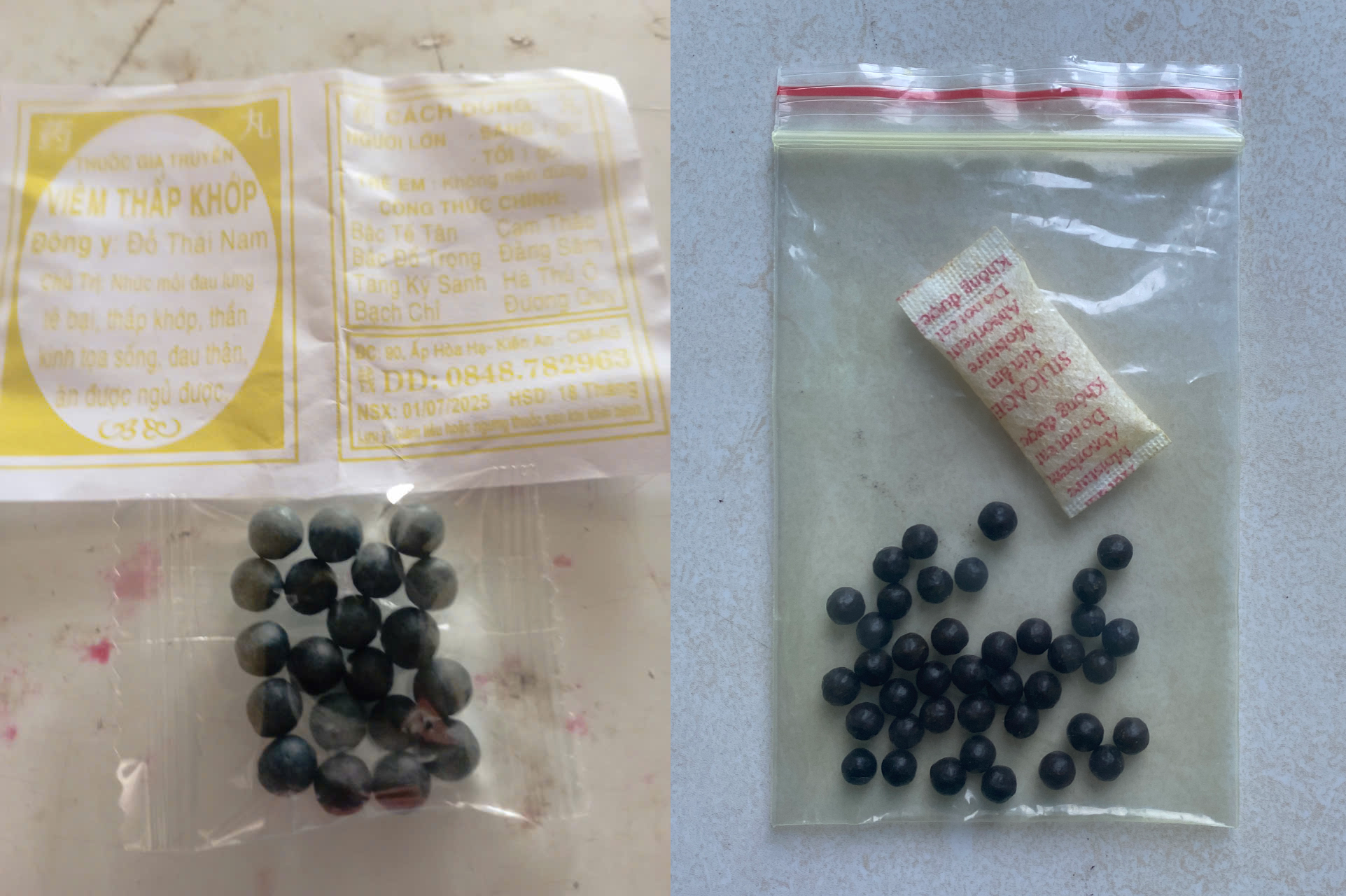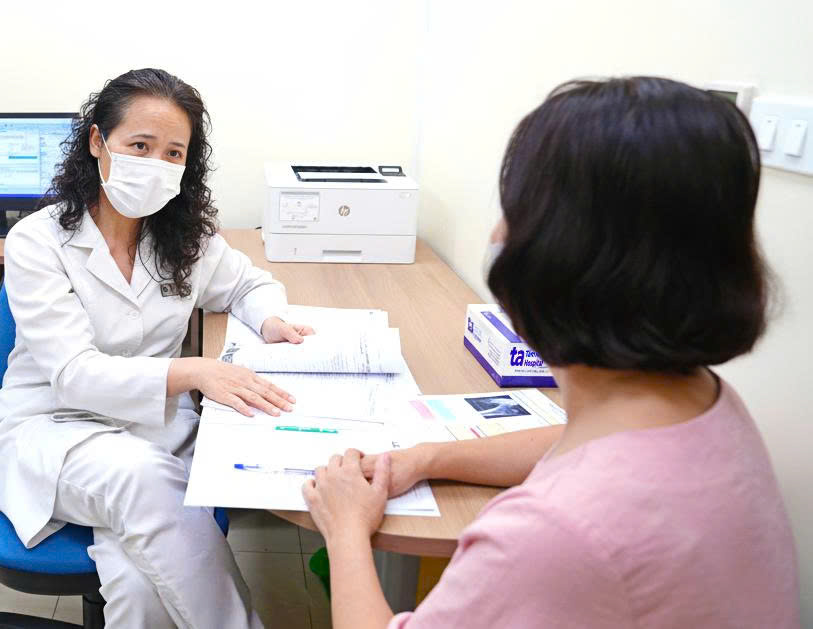Mo, an 85-year-old woman with lumbar spondylosis, was diagnosed with medication-induced adrenal insufficiency after taking a so-called "traditional" medicine for four years. She explained that the medicine, sent by a relative working far away, was popular among her fellow villagers. Advertised as "traditional," it came in pill form, packaged in nylon bags with a small slip of paper indicating dosage and a phone number, but no licensing information. Whenever she experienced back pain and leg numbness, she took 20 pills as instructed. If the pain subsided, she halved the dose; if it persisted, she doubled it. Recently, her back pain intensified, leaving her unable to walk or sleep.
 |
The "traditional" medicine the patient was taking. Photo: Patient provided |
Associate Professor Doctor Dang Hong Hoa, Head of the Musculoskeletal Department at Tam Anh General Hospital in Hanoi, diagnosed Mo with spondylosis, a new compression fracture of the L5 vertebra, multiple herniated discs, osteoporosis, and medication-induced adrenal insufficiency.
Dr. Hoa explained that medication-induced adrenal insufficiency is a common consequence of musculoskeletal patients using unlicensed, unregulated "traditional" medicines with unclear compositions, often adulterated with exogenous corticosteroids.
Corticosteroids are steroid hormones naturally produced by the adrenal glands to regulate physiological processes such as stress responses, immune responses, and inflammation. Exogenous corticosteroids are synthetic versions of these hormones, administered orally, by injection, as a spray, via mucous membranes, or topically. While effective in suppressing the immune system, reducing inflammation, and providing rapid pain relief for musculoskeletal conditions, their use should be supervised by a physician who can adjust the dosage based on individual patient needs and the stage of the disease. "Taking 'traditional' medicines containing high levels of exogenous corticosteroids suppresses the adrenal glands' natural corticosteroid production, eventually leading to adrenal insufficiency," Dr. Hoa explained.
 |
Dr. Hoa advises a female patient to take medication as prescribed. Illustration: Tam Anh General Hospital |
Adrenal insufficiency resulting from corticosteroid misuse often presents with central obesity (fat accumulation around the face, neck, abdomen, and chest), a round, red face, muscle wasting in the limbs, stretch marks, easy bruising (a condition known as Cushing's syndrome). Patients may also experience fatigue, loss of appetite, high blood pressure, high blood sugar, personality changes, irritability, or unusual weakness.
In cases of acute adrenal insufficiency, patients can experience dangerous complications such as low blood pressure, cardiovascular collapse, electrolyte imbalances leading to coma, and even death if not treated promptly.
Mo received medical treatment before undergoing a biocement injection procedure combined with endoscopic decompression of the lumbar spine. After two days, she was able to walk again, but will require long-term treatment for adrenal insufficiency.
Dr. Hoa advises individuals with musculoskeletal conditions against self-medicating or recommending unregulated "traditional" remedies of unknown origin. Patients should adhere to scheduled check-ups and follow prescribed treatments from hospital physicians. Consulting a doctor before changing medications, adding new medications, or taking supplements is crucial. Many musculoskeletal medications can interact or have contraindications with each other, requiring careful dosage adjustments based on the patient's condition.
Thanh Long
*The patient's name has been changed












